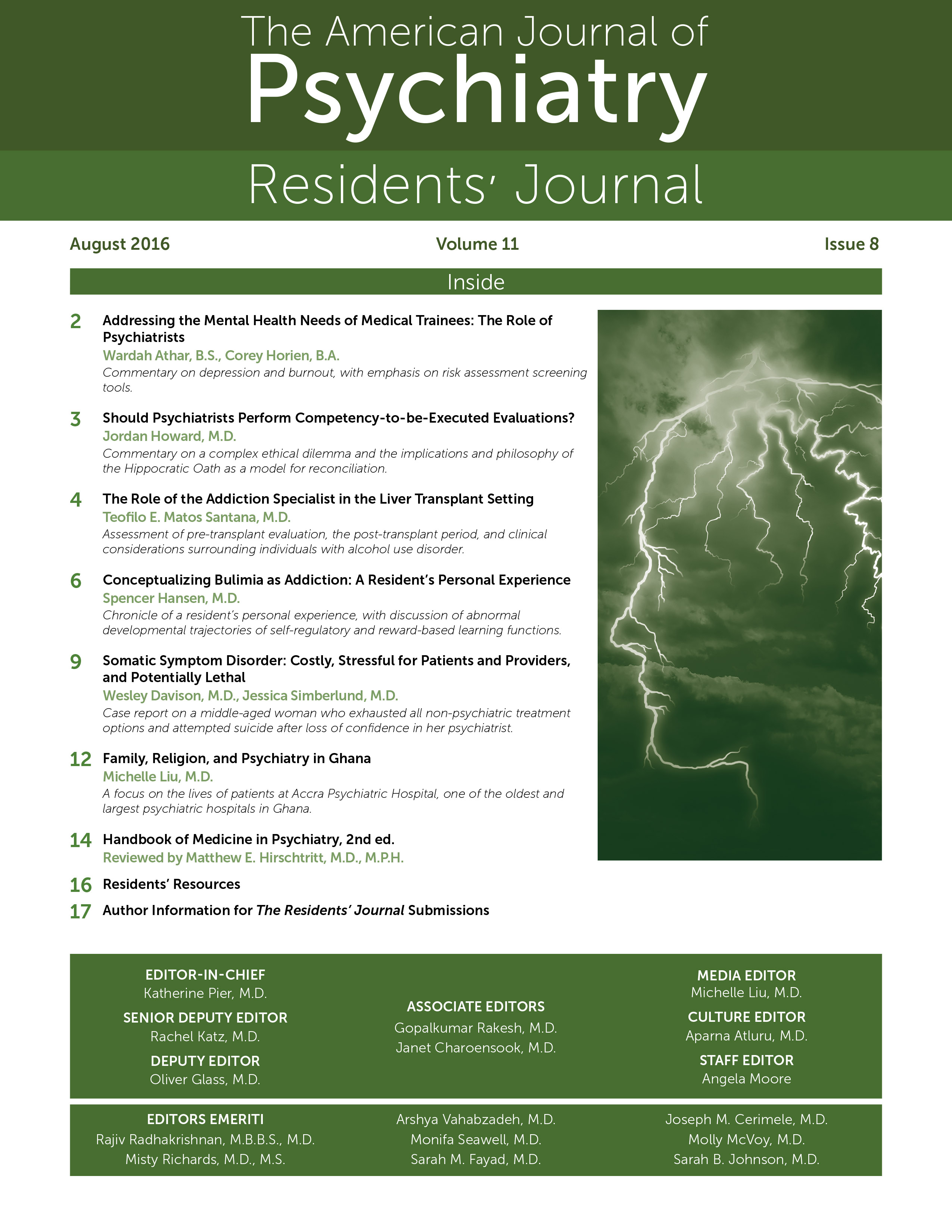It has long been acknowledged that medical trainees experience higher rates of mental health problems than age-matched populations, with depression and burnout being particularly severe issues that have been well described in the literature (
1,
2). The high prevalence of mental health difficulties among trainees has the potential to negatively affect patients, as one research group found that depressed trainees committed significantly more medication errors compared to non-depressed trainees (
3). Despite these data, it appears that trainees still perceive many barriers to accessing and utilizing proper mental health resources. Survey data published in 2010 revealed that depressed trainees reported many deterrents to receiving adequate treatment, including insufficient amounts of time, a desire to handle problems on their own terms, a paucity of convenient treatment avenues to access, and apprehension regarding confidentiality (
1). Thus, while the mental health of medical students and residents is becoming better studied, there remains much to be done to ensure that all physicians in training receive appropriate mental health support.
To help address these issues, medical training programs will need to come up with creative, multifaceted solutions. One such program attempts to identify individuals displaying behaviors consistent with suicidal ideation and depressive symptomatology. The Suicide Prevention and Depression Awareness Program at the University of California, San Diego (USCD) School of Medicine, led by a committee of faculty, housestaff, and medical students, has developed an online suicide screening tool that identified individuals at risk and connected them with counselors as needed (
4). A 4-year assessment of the program revealed that 8% of respondents qualified for “high suicide risk,” and of these respondents, 76.9% were not receiving mental health care at the time of the survey. Data such as these suggest that early screening programs may provide a way to identify, and subsequently support, at-risk trainees.
While the long-term efficacy of the UCSD program is still to be seen, the need to generate novel, evidence-based solutions to address the mental health needs of trainees remains. Although we are still early in our training and recognize that we have much to learn about what it means to practice effective self-care as medical trainees, we hope that by engaging with these issues now, we can contribute to the shifting culture surrounding mental health across specialties. As students interested in pursuing careers related to psychiatry and mental health, we believe that psychiatry trainees in particular have an opportunity for modeling mental health for patients and colleagues. We ourselves have been inspired by the many ways that psychiatry residents, both at our institution and around the country, are leading by example when it comes to practicing effective self-care, maintaining an appropriate work-life balance, and ensuring the wellbeing of colleagues. It is our hope that this commentary offers a chance for readers to reflect on their own mental health and serves as a discussion point for those currently in training.
Acknowledgments
The authors thank Dr. Nancy Angoff for assistance with this commentary.
